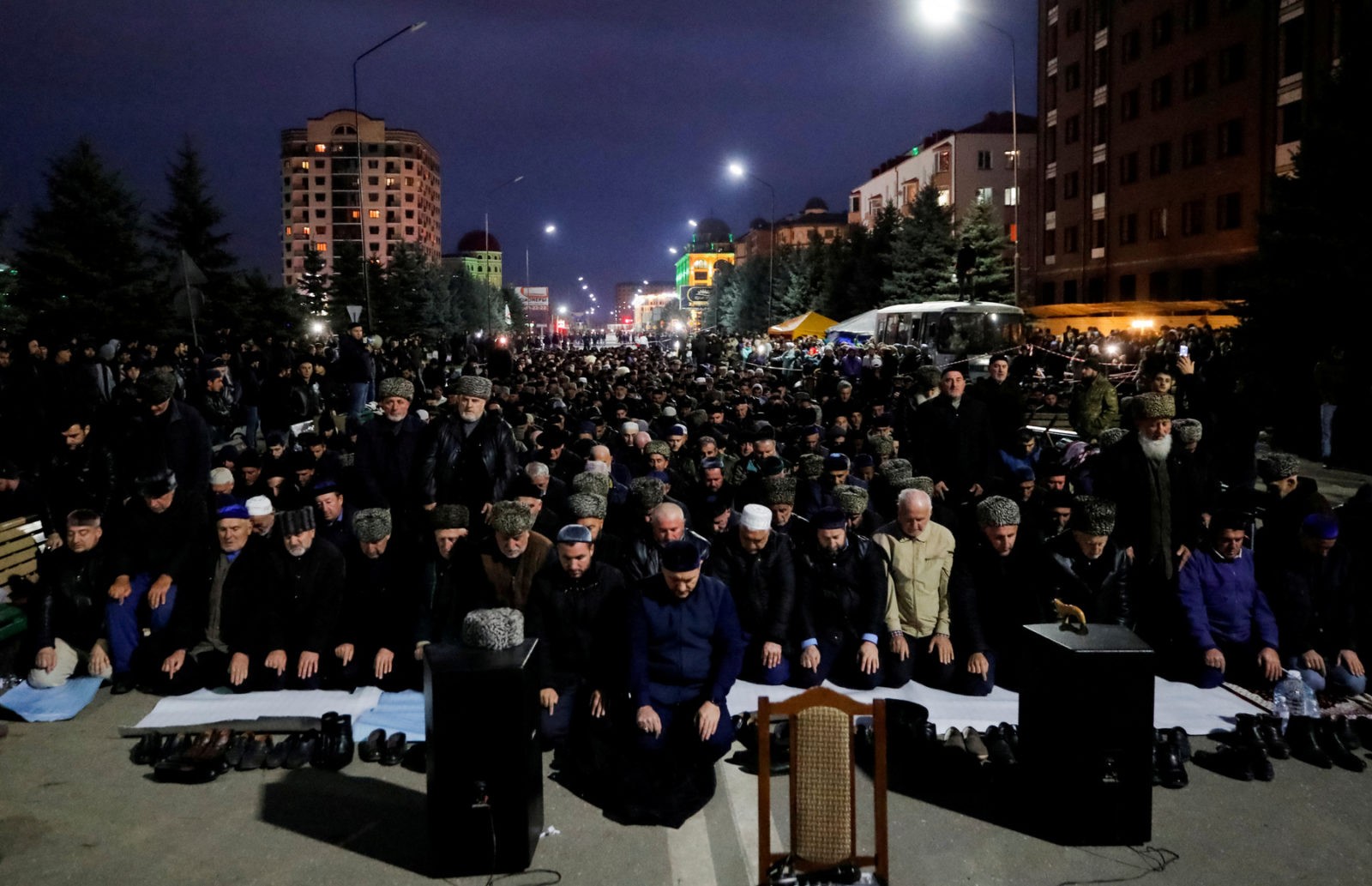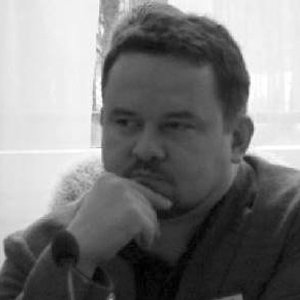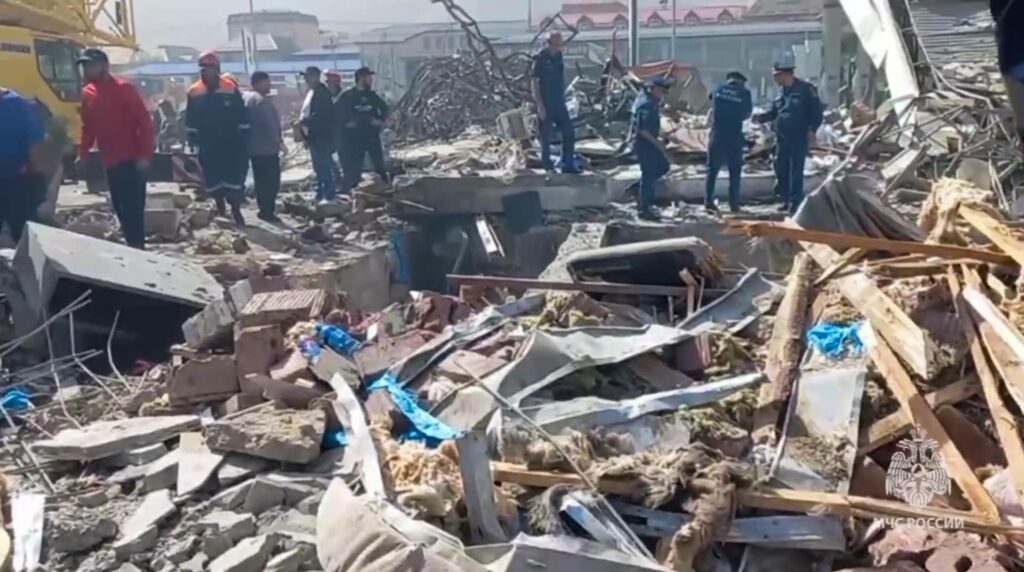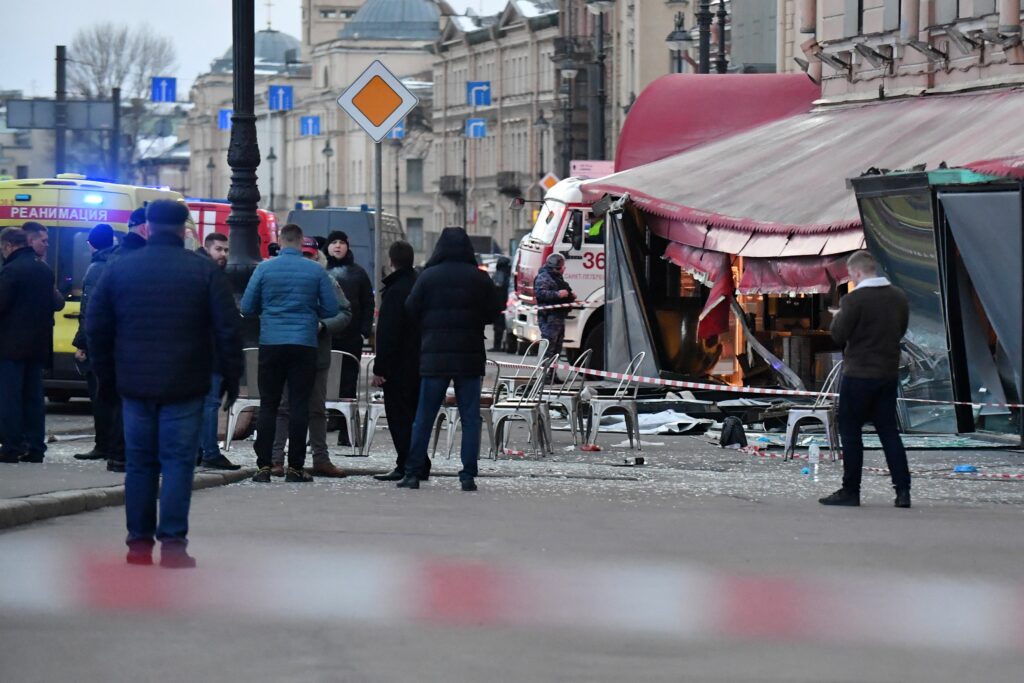Historically, Russia’s policy in the Caucasus has had several imperial iterations. To varying degrees of extent and intensity, the focus has swung between commercial interest, cultural influence, assimilation, and raw power politics. What is happening to that policy now in light of the recent protests in the Republic of Ingushetia?
To answer that question, it is worth looking first at Russia’s policy track record. Back in Soviet times, Moscow obscured national borders and the identity of the peoples of the North Caucasus. Borders were redrawn according to central plans. Entire nations were subjected to deportation. Lands were given to people who had not lived there before.
This policy created a myriad of ethnic and territorial conflicts in the Caucasus in the post-Soviet period. At the same time, Armenia and Georgia, the most Westernized and Christian regions of the Caucasus, evolved into separate countries. Their geopolitical fears used to push them towards Russia. After all, these countries were more tied in to Russian rule than other parts of the Caucasus. But that thinking soon flipped after the Soviet collapse. The Euro-Atlantic world emerged as an enticing alternative.
A Suitcase without a Handle?
The North Caucasian republics were always less integrated with Russian rule. People there lived under strict Islamic traditions. Their way of life centered around local, tribal rivalries. Right back to the times of General Yermolov, Russia has pursued a more forceful policy here. During the 1990s and early 2000s, the federal centre continued to perceive the region as a fragmented cluster of ethnic entities. Each republic, the thinking went, their local agendas. But they were, most Moscow policy makers concluded, dependent on the federal agenda.
This thinking about the North Caucasus had severe drawbacks. Moscow did not realise the need to craft strategies for the development of the North Caucasus as a whole. No great initiatives emerged shape identity policy. Little support was given to support Sufism or cultural programmes. The consensus remained that the most effective method is to maintain control with force and finance. And so, Moscow is unable to offer anything that would oppose radical Islamic extremist influences. The most radical factions suppress traditional Sufism, which is pacific.
Moreover, an evolution is happening. North Caucasian regions are pushing for their own political and cultural autonomies. Local politicians here demand the right to determine their own development goals. Moscow has not yet grasped the scope of the developments. And so the Kremlin’s response appears stilted.
For the first time in its history, Moscow has encountered a movement in the Caucasus that not only stands in opposition, but also aims to strengthen its own centralised power throughout the region and to “collect lands.” It is a paradox that the trigger came from trying to stop Chechnya from seceding. The resulting wars only strengthened Chechnya’s presence in the wider Caucasus. At first, in Dzhokhar Dudayev’s times, the Chechen separatist project was marginal. But after the so-called victory in the Second Chechen War and the transfer of power to Ramzan Kadyrov, the discursive and political-economic representation of Chechnya as an autonomous national and state entity with expansionist intentions has begun to take shape and develop its own institutions. The current president of the Chechen Republic called himself “Putin’s loyal infantryman.” Yet in political, economic and military steps, he has expanded his own zone of influence. And he has pushed for autonomy.
An ideological foundation is now in place for those aiming to expand regional influence across the Caucasus. This ideology relies on a sense of Islamic religious and cultural community. These exist both across the post Soviet space and include links with international Islamic centres of influence. The publication of the book ‘The KRA Factor: The Confrontation’ is also an ideological lynchpin. The book was published by the Chechen Minister of National Policy Jambulat Umarov. And it hints at the type of mythmaking now at play in Chechnya. Needless to say, the book highlights importance of Kadyrov personally. It also underlines the Chechen influence on the fate of Russia as a whole.
Such a publication may look like flattery. But it nonetheless provides meaning to the key role of Kadyrov personally in the confrontation with the “West”. In fact, the author is trying to introduce new key figures into the Eurasian explanatory crypto-myth about the “Great Game.” It is an attempted historical revisionism. Especially of the geopolitical confrontation of the “internal states”.
In fact, nowadays Chechnya has almost everything that the 1996 separatists were fighting for. In some ways, it has much more. (Except the official severing of ties from Russia, which is not quite so necessary.) For instance, the head of the Chechen Republic has its own army. That consists of at least 30 thousand soldiers trained and armed with all types of infantry weapons. This army is officially part of the Russian special units, but no one has any illusions about who the army reports to. The Chechen Republic has also achieved the autonomous right to control its oil and other mineral resources. At the same time, Chechnya receives enormous subsidies from the Russian budget. Not only does this allow Chechnya to paint a picture of a good life in the republic. It also helps maintain an army, and invest in various economic projects throughout Russia. The Chechens also use this money to increase economic and political influence. They do so via the Chechen diasporas throughout Russia and abroad.
Thus, Chechnya is turning into the main domestic player in the North Caucasus. It pursues its own interests, as illustrated by the situation with Ingushetia. The novelty is that this player will now compete not with other Caucasian republics, but with the federal centre, on its playing field. Moscow has long played the role of an arbiter in the Caucasus. It has been the main distributor of goods and a forceful problem solver (and maker of inter-ethnic and territorial conflicts. Moscow has become so accustomed to this role to the point of not recognising emerging new realities. Had any Moscow policy maker considered Ingushetia might be against a border decision in favour of Kadyrov? Did anyone recognise that this decision would consolidate the Ingushetia elites, the siloviki and the people. Of course, Moscow has enough financial and military resources to isolate and suppress the protest. The only question is how far they are ready to go. Should they suppress discontent in Ingushetia or to constrain Kadyrov’s claims?
This crossroads bears negative consequences. If protests in Ingushetia are suppressed, the end is unclear. It is likely that the federal forces will have to shoot, or, even worse, will be given a blank check to use the Chechen formations. The consequences of such a move are quite clear. Kadyrov’s federal influence would then finally become obvious. He will be seen as the new the problem solver in conflicts. At the same time, this will mobilise a powerful front not only against him, but also against the federal centre, which is “weak.” Thus, a forceful suppression would lead to increased tension in the Caucasus.
If Moscow decides to limit Kadyrov’s appetite this time, it will most likely have to somehow compensate and accept concessions in another sphere. That will strengthen Kadyrov in the future elsewhere. In this scenario, the Caucasian republics will gain a new lever of pressure on Moscow: Either through agreements with Kadyrov, which will further strengthen his influence, or by playing up conflicts, where the centre will use ever more resources to settle them.
China’s Interests
Not only Russia sees the Russian North Caucasus as a zone of its interests. This region could be of interest to China, for instance. Beijing is promoting its concept of a “New Silk Road.” Part of this has required an active flow of investments to Georgia and the Central Asian republics. This project could be bait for North Caucasian elites. The proviso would be if they see they can profit and get guarantees of maintaining the status quo. The Caucasian republics can use this to make the case for economic survival without Moscow’s sponsorship. In this context it becomes understandable that Grozny strives to expand its influence along the E50 federal motorway. That runs through Ingushetia and North Ossetia to the Stavropol region. Namely, the only exit to the Black Sea that might lie open for Chechnya.
Thus, the situation in Ingushetia is not a single episode. Rather, it is a symptom of a very serious crisis in relations between the federal centre and the Russian Caucasian republics. If this crisis develops, this will lead to a shift of centres of influence within the region. The question is only in the quality and dynamics of such an shift. The traditional policy of cash infusions and military operations conducted by federal security forces on the basis of the state of emergency is becoming ever less effective. The situation in Ingushetia proves that this only leads to consolidation against the decisions made by the federal centre.
This consolidation is already quite far along. It is happening on a bottom-up basis, with good reasons, and spans the region. In this context, the federal security forces become isolated. Even though, according to some reports from the field, they have the capability of turning off the Internet and communications in Ingushetia to isolate the Russian information field from any events.
The classic carrot-and-stick method no longer works to the extent Moscow would like to see it. The Caucasus is changing its political and economic landscape, and with the new players emerging in the Caucasian-Caspian region Russia cannot offer more attractive economic conditions or more attractive cultural or political messages that could consolidate the society in its favour. Moreover, the Russian policy itself, based on a mixture of regulated access to federal money and extraordinary coercive methods, is creating ever greater internal tensions. This may lead to a further consolidation of anti-federal sentiments among regional elites and locals. At the same time, there are no signs of any imminent serious change in the Kremlin’s current policy. From its perspective, the Caucasus is becoming the notorious “suitcase without a handle.”










